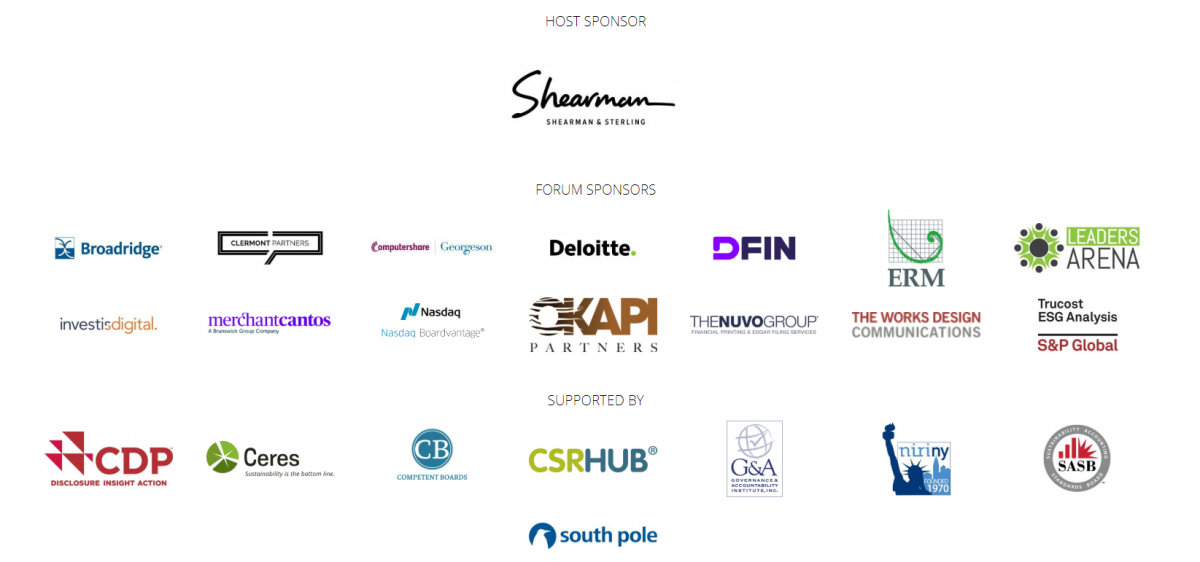Companies are grappling with how much time to spend on their own ESG reporting compared with completing surveys and engaging with ESG ratings agencies, according to speakers at the recent ESG Integration Forum, held earlier this month.
Christina Wong, director at SustainAbility, an ERM Group company, started the ESG Integration Forum by presenting some preliminary findings from the company’s research. This data suggested that while investors subscribe to third-party ESG data providers – such as MSCI, Sustainalytics, RobecoSAM and others – the data doesn’t drive investing decisions.
Indeed, Wong explained, investors are likely to subscribe to more than one ESG data provider and integrate the data into their own research processes, based on the work of their analysts and by engagement with issuers. One speaker cited the recent launch of State Street Global Advisors’ (SSGA) R-Factor – which inputs the findings from several ESG data providers, overlays SSGA’s own research and maps all of the data to the Sustainability Accounting Standards Board’s definitions of materiality – as an example of how institutional investors are consuming ESG information.
But for Sharon Basel, senior manager of global sustainability and ESG at General Motors, there is still concern about the quality of ESG data that makes it to market. ‘We’ve seen greater inconsistency in the quality of data with ratings and rankings,’ she said. ‘We’ve been engaging with [these companies] for the last five years to address that. We’d sought to close the gaps, but it seems at this point that the data quality gap has grown. That’s very concerning and adds to the workload in this field.’
She added that the inflow of investor questions concerning ESG has increased significantly: a few years ago, GM would receive a few investor questions per year on E&S topics, but the company now gets questions as often as once a week.
Basel’s concerns around the quality of ESG data in the market led to an increased focus on GM’s ESG reporting. ‘It’s driven a strategy to ensure that what we have on our website and in our sustainability reporting is complete, so that everyone – investors, communities and employees – know that when they go to our website they’re going to find the information they need,’ she said.
OWNING THE ESG STORY
This was a challenge that many in the room noted and it’s exacerbated by survey fatigue – the sensation of completing numerous long and often arduous requests for information from ESG ratings providers.
At AT&T, Ben Kruse, director of global CSR reporting and insights, actually uses the surveys he receives as inspiration for additional ESG reporting. ‘We’ve tried to take a different tack with these organizations,’ he explained. ‘The way our reporting is structured is that we produce a summary document that talks at a high level about what we’re doing. That’s about 40 pages. Then we produce 20 issue briefs that are deep dives into the most important ESG or CSR topics. To produce these, we begin with all the questions asked by ratings and rankings agencies.’
Kruse said these issue briefs tend to be one or two pages long and around 300 people within AT&T provide input on their content. They are available on AT&T’s investor relations website.
Having produced these publications, Kruse then reviews whether AT&T is overreporting or underreporting on certain topics, based on the questionnaires he receives from ratings agencies. ‘We want to be responsive to what people are asking for, rather than just reporting for reporting’s sake,’ he added. AT&T won the best ESG reporting category at this year’s Corporate Governance Awards.
Basel agreed that this was an effective form of ESG communication, adding that there have been times when the questions contained in an ESG survey are informative for GM’s management team.
‘We are always looking at where we can close gaps in ratings and rankings,’ she said. ‘If there are gaps on a topic that are significant to investors, we work with management to think about changing the business strategy to address them. In some instances, we’ve begun to do that. In other instances, it’s about taking a fresh look at what you’re disclosing.’
GM this year won the best proxy statement (large cap) category at the Corporate Governance Awards for the second year running. The judges praised the clear articulation of the company’s long-term strategy, as well as the integration of ESG factors into the proxy statement.










